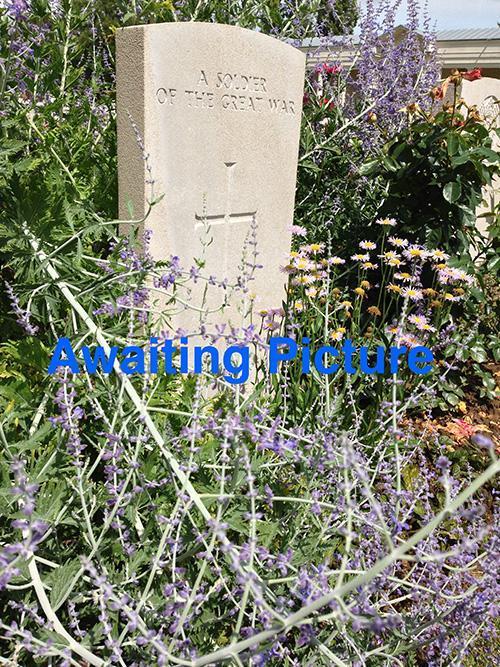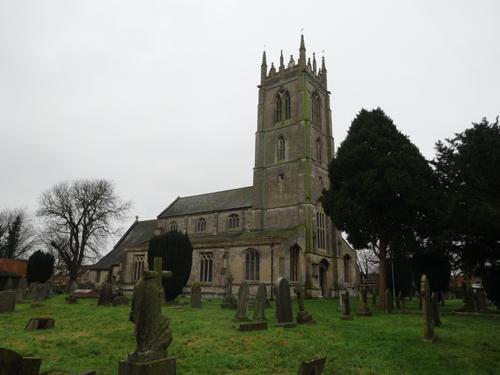Biography of Private William Patman (5902)
2nd Battalion Lincolnshire Regiment
Formerly 1st Lincolnshire and
The Militia Lincolnshire Regiment
Died 4th April 1916
Soldier
- Name: William Henry Patman
- Date of birth: 1877
- Place of Birth: Folkingham, Lincolnshire, England
- Date of Birth Registration: January – March 1877
- Place of Birth Registration: Bourne, Lincolnshire, England
Father
- Name: Leonard Patman
- DOB: 1837
- Place of Birth: Folkingham, Lincolnshire, England
- Occupation: Agricultural labourer
Mother
- Name: Mary Ann Kirk
- DOB: 1848
- Place Of Birth: Folkingham, LIncolnshire, England
- Marriage: 1876 Bourne District
Siblings: (Name), (DOB), (POB)
- John Thomas Patman, 1859, Folkingham (Half brother)
- Elizabeth Patman, 1862, Folkingham (Half sister)
- Ellen Sutton Patman, 1865, Folkingham (Half sister)
- Emma Patman, 1867, Folkingham (Half sister)
- William Patman, 1868, Folkingham (Half brother) (Died 1868)
- James Patman, 1873, Bourne
- Leonard Patman, 1875, Folkingham
- William Henry Patman, 1877, Folkingham
- Frances Emily Patman, 1879, Folkingham
Census
- 1881: William is living with his parents in Folkingham, Lincolnshire.
- 1891: William is living with his grandmother’s house with his father in Folkingham, Lincolnshire.
- 1901: Unable to find him as of yet.
- 1911: Williamis living with the Marvin family at Lenton Lodge, Folkingham, Loncolnshire. The census gives him an age of 34 and he is listed as a farm labourer, Private Linc Regiment.
Relatives in services
- William’s cousin George Alfred Brooks also fought and was killed in WW1. George can be found on our page dedicated to the Bourne War Memorial.
Marriage
- No marriage for William has been found and we can assume that he never had the opportunity to marry.
Newspaper Mentions
- Sheffield Daily Telegraph Wednesday 2nd December 1914
CASUALTIES IN THE LINCOLNS
Patman (5902), Pte. W.
- Sheffield Daily Telegraph Monday 14th December 1914
CASUALTIES IN THE LINCOLNS
WOUNDED
Patman (5902), Pte. W.
- Grantham Journal Saturday 19th December 1914
CASUALTIES IN THE LINCOLNS
Patman, 5902, Pte. W.
- Grimsby Daily Telegraph Tuesday 22nd December 1914
THE LINCOLNS.
Another List of Casualties.
WOUNDED
patman (5902), W.
- Lincolnshire Echo Tuesday 22nd December 1914
LINCS REGIMENT CASUALTIES
WOUNDED
Patman, 5902, Pte. W.
- Sheffield Daily Telegraph Tuesday 22nd December 1914
ROLL OF HONOUR.
HEAVEY DEATH ROLL IN THE LINCOLNS
Wounded
Patman (5902), Pte. W.
- The Scotsman Tuesday 22nd December 1914
WOUNDED
LINCOLNSHIRE REGIMENT
5902 Patman, W.
- Lincoln Leader and County Advertiser Saturday 26th December 1914
THE LINCOLNS.
Another Long Casualty List.
WOUNDED
Patman, 5902 Pte. W.
- Grantham Journal Saturday 2nd January 1915
WOUNDED SOLDIERS – Two of our Folkingham boys wounded in the defence of the Empire had so far recovered as to be able to spend their Christmas day with their friends and parents at Folkingham. Pte. J Blundy surprised his parents by his arrival home on Christmas eve, having been discharged from Hospital and Pte W Patman is also at Folkingham, regaining strenght after his wounds.
- Grantham Journal Saturday 8th April 1916
FOLKINGHAM
ONE OF OUR FIGHTING HEROES, Pte. William Patman, after a lingering illness passed away at the residence of his sister, at Folkingham, on Tuesday week. Pte. Patman was an old soldier, having joined the Colours in 1901. He saw service in South Africa and India, during which time he excelled in musketry and gained several first class certificates and also received the goood conduct badge during 1905. He was a general favourite, all speaking of him as a fearless soldier. After serving his time with the Regulars, he went in the Reserve and was mobilised at the outbreak of war. Amongst the first drafts sent out to France, he went through several severe engagements and after two months received a gunshot wound in the knee, when he lay on the battlefield for twenty four hours before being found. He was invalided home and on recovering was again ordered to the front, but after a few days his health gave way and reported sick, being eventually sent home to hospital, where it was found he was suffering from chest trouble and was discharged as no longer physically fit for war service. He, however, developed rapid consumption, and did not live long to enjoy his total disablement pension. The funeral took place at Folkingham on Friday, amidst every manifestation of sorrow and regard. The remains were laid to rest in Folkingham Churchyard. The Rev. F. V. Heath officiated, and many paid their last tribute of respect to one who gloriously and faithfully served his King and country.
Military Records
Attestation Papers
- Available
Soldier’s Died In The Great War
- None found
Pension Records
- Available
Effects Left To
- Sisters Elizabeth and Ellen
Medals
- The British Medal
- The Victory Medal
- The 14 star
Memorials
- UK:
- Folkingham, Roll of Honour in St Andrew’s Church
- Commonwealth War Graves Commission:
- None found

© Picture taken by South Lincolnshire War Memorials

© Picture taken by South Lincolnshire War Memorials
Military Service Timeline
Today we remember Folkingham man William Henry Patman, who died on this day 4th April 1916, after serving with the 2nd Battalion Lincolnshire Regiment.
Born in Folkingham in 1877, between the months of January and March, William was the son of Leonard Patman, an agricultural labourer from Folkingham, and Mary Ann (nee Kirk) also from Folkingham. Their marriage was registered in 1876 in Bourne.
Together they had four children, with Leonard having a number of children from a previous marriage:
John Thomas (born 1859, Folkingham, half-brother)
Elizabeth (1862, Folkingham, half-sister)
Ellen Sutton (1865, Folkingham, half-sister)
Emma (1867, Folkingham, half-sister)
William (1868, Folkingham half-brother, died 1868)
James (1873, Bourne)
Leonard (1875, Folkingham)
William Henry (1877, Folkingham)
Frances Emily (1879, Folkingham).
In 1881, William is recorded to be living with his parents in Folkingham, Lincolnshire. By 1891, William is living at his grandmother’s house with his father in Folkingham following the death of his mother in 1882.
There is no census record for William’s residence for 1901, as he joined the Lincolnshire Regiment on 13th May that year, aged 18. His initial service was at home and eventually he was posted to South Africa on 4th March 1903. After 10 months in South Africa the Regiment were posted to India where William spent the next 5 years with the Battalion.
According to a report in the Grantham Journal, dated 8th April 1916, during his time abroad ‘’he excelled at musketry and gained several first class certificates and also received the good conduct badge in 1905. He was a general favourite, all speaking of him as a fearless soldier.’’
His records then show that William received pay for a further 4 years of home service, from the Battalion’s return from India on 23rd February 1909 until 12th May 1913.
In 1911, William was recorded as living with the Marvin family at Lenton Lodge, Folkingham. He worked as a farm labourer, but there is also mention of him being a Private in the Lincolnshire Regiment.
After re-attested in November 1913, William, now a reservist was called up for service with the Lincolnshire Regiment on 5th August 1914, being posted at first to the 3rd Battalion. On the 20th August, he received a further posting and this time he re-joined his old Battalion, the 1st Lincolnshires. On the 21st August, the Battalion started to move forward from Avesnes to the frontline and to partake in the Battle of Mons.
Following the retreat from Mons, the 1st Battalion was defending the area of La Base Panel towards the middle of October, and by the 26th October were defending the village of Neuve-Chappelle. After 2 days of fierce fighting, the village fell and William was admitted to a field ambulance with a gunshot wound to his left leg.
Two days later William was transferred back to England to recover from his wounds.
The later newspaper report from the Grantham Journal, April 8th 1916 stated:
‘’Amongst the first drafts sent out to France, he went through several severe engagements and after two months received a gunshot wound in the knee, when he lay on the battlefield for twenty four hours before being found. He was invalided home and on recovering was again ordered to the front.’’
An excerpt can also be found in the Grantham Journal from the 2nd January 1915 mentioning William at this time:
‘’WOUNDED SOLDIERS- Two of our Folkingham boys wounded in the defence of the Empire had so far recovered as to be able to spend Christmas day with their friends and parents at Folkingham. Pte. J Blundy surprised his parents by his arrival home on Christmas Eve, having been discharged from Hospital and Pte W Patman is also at Folkingham, regaining strength after his wounds.’’
Having spent January 1915 convalescing in Folkingham, the 5th February 1915 saw William once again posted back to the Lincolnshire Regiment. This time it was to the 3rd Battalion, a home service Battalion. Eventually following his complete recovery from his wounds, William was posted to the 2nd Battalion. On the 7th April, he embarked again for France, with the 2nd Battalion having recently been stationed around Neuve-Chapelle, the same place where William was injured.
When William arrived back at the front, the 2nd Battalion had only just got back into the billets after their last 4 day stretch in the trenches South West of Armentieres.
After a few days, his health gave way and reported sick on the 14th April, and was admitted for appendicitis and transferred to No 6 Clearing Hospital at Merville in France. Four days later William was sent to Boulogne and the next day was transferred back to England on the St Patrick.
Initially being sent home to receive further treatment, the appendicitis symptoms cleared up. Unfortunately during this time, William was found to be suffering from a chest problem too. This bronchia problem was diagnosed as tuberculosis of the lungs brought on by military service.
This saw the end of William’s military career, as he was discharged as no longer physically fit for service on July 4th 1915.
Now back in Folkingham, he was destined to draw out a full disablement pension for his years of service to the Lincolnshire Regiment. Unfortunately, William’s case of tuberculosis rapidly worsened and William passed away on April 4th 1916.
The Grantham Journal dated April 8th 1916 reported as follows:
‘’ONE OF OUR FIGHTING HEROES, Pte William Patman, after a lingering illness, passed away at the residence of his sister, at Folkingham, on Tuesday week…. The funeral took place at Folkingham on Friday, amist every manifestation of sorrow and regard. The remains were laid to rest in Folkingham Churchyard. The Rev. F. V. Heath officiated, and many paid their last tribute of respect to one who so gloriously and faithfully served his King and Country.’’
It is believed that William is buried in a family grave alongside his sister, that was recorded to be living in Folkingham, and her husband as no solo grave can be found dedicated to William.
All effects were left to William’s sister’s Elizabeth and Ellen.
In total William had served with the Army for 13 years and 244 days.
Sources
- WW1 Soldier’s Records (www.ancestry.co.uk)
- British Newspaper Archive.
- Fold 3
- Find My Past
- Genealogist
- Forces War Records
- British Army Service Numbers
- War Gratuity Calculator
- Commonwealth War Graves Commission
- National Archives – Battalion War Diaries
- General Registry Office